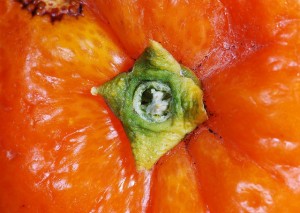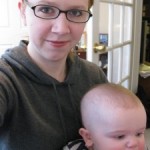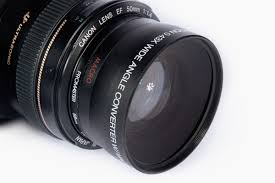
A macro lens
Fact: According to the FDA’s “Food Action Defect Levels”, up to 30 “insect fragments” are allowed per 100g of peanut butter. Since my favorite brand of honey roasted creamy peanut butter is 794g, this means that close to 240 insect fragments are legally acceptable in my current jar of peanut butter and “pose no inherent hazard to [my] health”.
 As shocking as this factoid may be to those with delicate constitutions, I confess I’m not really worried about it. I have, after all, watched Andrew Zimmern ingest a lot of gross stuff that is apparently quite nutritious. Since my peanut butter has been pureed to death, I don’t actually have to see any insect fragments. So, I like to pretend they aren’t there. Why? Well, it’s simple really. I love peanut butter. Peanut butter fudge. Those creamy Sam’s Choice peanut butter cups at Wal-Mart. Envisioning a world without peanut butter makes me feel deprived. Since the world must accommodate both people and insects, I have arrived at the conclusion that no food can be perfect –least of all peanut butter—so there is little point to getting my knickers in a twist about it. Peanut butter, aside from theoretical microscopic insect parts, has many fine qualities. I pretend those insects aren’t there, so that I may continue to enjoy peanut butter. (You don’t even want to know what’s allowed in hops. Trust me.)
As shocking as this factoid may be to those with delicate constitutions, I confess I’m not really worried about it. I have, after all, watched Andrew Zimmern ingest a lot of gross stuff that is apparently quite nutritious. Since my peanut butter has been pureed to death, I don’t actually have to see any insect fragments. So, I like to pretend they aren’t there. Why? Well, it’s simple really. I love peanut butter. Peanut butter fudge. Those creamy Sam’s Choice peanut butter cups at Wal-Mart. Envisioning a world without peanut butter makes me feel deprived. Since the world must accommodate both people and insects, I have arrived at the conclusion that no food can be perfect –least of all peanut butter—so there is little point to getting my knickers in a twist about it. Peanut butter, aside from theoretical microscopic insect parts, has many fine qualities. I pretend those insects aren’t there, so that I may continue to enjoy peanut butter. (You don’t even want to know what’s allowed in hops. Trust me.)
 It’s not unlike art. I’ve visited a handful of the great art galleries of the world. I’ve been fortunate to see – in person – works by Michelangelo, Picasso, Rembrandt, and the like. They were beautiful, sometimes haunting, and evocative. The idea that I will be but one of millions to have gazed at these masterpieces makes me feel connected to the world – its past, present, and future. But here’s the thing. Like peanut butter, they come with imperfections. They remain amazing testimonies to the genius of their creators. But “The Masters” were human and inherently imperfect.
It’s not unlike art. I’ve visited a handful of the great art galleries of the world. I’ve been fortunate to see – in person – works by Michelangelo, Picasso, Rembrandt, and the like. They were beautiful, sometimes haunting, and evocative. The idea that I will be but one of millions to have gazed at these masterpieces makes me feel connected to the world – its past, present, and future. But here’s the thing. Like peanut butter, they come with imperfections. They remain amazing testimonies to the genius of their creators. But “The Masters” were human and inherently imperfect.
“But, Flappiness, whatever do you mean that Michelangelo’s works were imperfect?!”
Well, Gentle Reader, I mean exactly that. If you were to take a fancy camera and put a really pricey macro lens on it, you’d see. As I’m sure any art restorers working for a great museum could attest. If you were to zoom in on a portion of a masterpiece, you’d find lots of little imperfections. Smudges, inconsistency of color, evidence of images painted over previous ones. You name it. They’re there. Which is precisely why I don’t carry a macro lens to the gallery. (That and the fact that they probably won’t let me in their back rooms.) I don’t want to see all of the imperfections.
A couple of days ago, I was involved in an interesting exchange in social media. An image, created by Lizbeth from Four Sea Stars was making the rounds and being shared all over. On the image – addressing autistic wandering/elopement – she stated, “…Oftentimes, the child is drawn to water.” Quickly, a commenter jumped in to take issue with her wording of “drawn to”. The commenter felt that it propagated the myth of autistic children as some sort of mystical creatures with water divining properties. The commenter, who honestly was quite civil and never outright rude, felt that it was more appropriate to say that autistic people simply “like water”. A lot of back and forth discussion ensued and people on both sides left irritated or nonplussed. It mattered little that two well-respected autistic advocates disagreed and insisted that, yes, a large percentage ASD folks are drawn to water. There was even a very good – very rational and detailed – explanation for why water is so much of a draw for those with sensory differences. But it went on. And on. And on some more.
A few days later, Flannery from The Connor Chronicles, came under fire when she posted about the inadvertent harm well-meaning people can do when they incorrectly assume that all autistic persons are alike. Parents of autistic children frequently receive messages from friends and acquaintances about such notable (and amazing) folks such as Carly Fleishman and Temple Grandin. Now, these two remarkable people are not the problem and do much, respectively, to benefit the autism community. The problem lies in the assumption some make that all autistic children will be like them – if only [insert common misconception here]. The macro lenses soon came out, and it made the rounds that she was attacking an innocent teenage girl. Yet, a less contentious reading of her post (and past writings and efforts on behalf of the community) makes it clear that she was not attacking a child – merely the side effects of mass societal ignorance of autism. Instead, the macro lenses focused upon one word in her post (“Carly’d”)– and all hell broke loose. Obfuscating her purpose and garnering attention for those who prefer drama over awareness and action.
That’s when I realized what’s really going on here. There’s a very small but vocal subset of this community (both neurotypical and otherwise) who have decided to keep their macro lenses on at all times. They are so fixated on ferreting out all perceived (and sometimes real) imperfections of thinking that they are unwilling to take off their high-powered lenses to see people for who they really are – whole persons. The macros stay on, and they lock focus upon everyone they suspect might evidence a little imperfection – especially if those writers have a respectably large platform. And, as we already know, imperfections – perceived or otherwise – will always be found under a microscope.
That’s fine to do with peanut butter and Renaissance masters, if you really feel the need. But human beings, by the nature of their complexity, cannot hold up intact under a macro lens. And, by intact, I mean that they cannot be seen accurately with a macro lens. You see just a portion of them. Perhaps a wart or two. But, if you don’t take off that lens and view the subject as a whole, then you will never truly see her. You won’t recognize her in the grocery store – anymore than the lab tech who viewed the cells from her dermatology biopsy. You won’t know that perhaps she simply has a different perspective. You won’t care that she might be in the early and confusing days of her child’s autism diagnosis. You won’t accept that just maybe her truth might be different from your own experience. You won’t likely consider that she might – just might – have a point. All you will see are the nitpicky imperfections in the lens you have chosen by which to view your world and its inhabitants. And the problem with that is that you then go on to make assumptions about her every “like”, every word, and any of her friends whom you may have also viewed under the microscope. She becomes no longer a person, but a symbol of all the “imperfections” your lens has captured. It’s then easier to lump her and everyone you deem like her into a category of “bad”. In our community’s case, enemies of autism. Next to followers of Andrew Wakefield, that usually turns out to be parents. However, it also involves wonderful and insightful self-advocates who simply disagree with your world view.
Am I saying that one should never point out what he believes to be faulty reasoning? Of course not. But attaching sinister motives to every statement made by those in the crosshairs of a macro lens is not okay. It’s not just unfair. It also deprives the one behind the camera. It alienates him from some perfectly nice, intelligent, caring individuals who have found themselves inadvertently cast into the world of special needs advocacy. Only most of these folks aren’t researchers. They aren’t trained autism experts. They likely cannot quit their jobs to go about considering and debating everything one would have them believe. They’re just people–who love their children and genuinely want to make a difference in their child’s world. They enter threads to connect to others, seek advice, and express their innermost fears, demons, and oftentimes – joys. They write blogs they hope others will read and connect with. They make social media images they hope will spread awareness. In this case, an attempt to raise awareness of the prevalence of drowning in cases of autistic wandering. This –after the deaths of three autistic children in one week. There was no motive beyond that. Only now there are a lot of hurt, angry, and bewildered parent advocates out there wondering why they can’t ever say or do anything right. I know. I’m one of them.
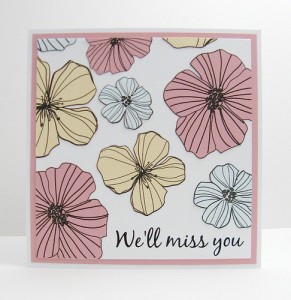 Over the past few months, I’ve seen some good people on both ends of the autism spectrum grow weary of the scrutiny of the macro lens. They are tired. Their intentions have been mocked and twisted into something unrecognizable. They’ve signed off of Facebook, quit their blogs, and returned to a life not under the microscope. That’s a shame to me. Because we’ve lost some important voices for awareness and acceptance. Voices both typical and neurotypical. Voices that have done much good for this community. Who attempted to bring about positive change, but who could no longer tolerate being dangled before a contentious community and used for target practice. I can’t say I blame them. I’ve considered it myself.
Over the past few months, I’ve seen some good people on both ends of the autism spectrum grow weary of the scrutiny of the macro lens. They are tired. Their intentions have been mocked and twisted into something unrecognizable. They’ve signed off of Facebook, quit their blogs, and returned to a life not under the microscope. That’s a shame to me. Because we’ve lost some important voices for awareness and acceptance. Voices both typical and neurotypical. Voices that have done much good for this community. Who attempted to bring about positive change, but who could no longer tolerate being dangled before a contentious community and used for target practice. I can’t say I blame them. I’ve considered it myself.
Macro lenses are amazing devices. For there is much beauty in the world when you look at it up close. But they can also be dangerous for the user. For, in looking at everything through them, you risk not seeing the big picture. You risk losing perspective. You risk getting run over by the Mack truck your lens cannot focus upon. And, worse, you run the risk of finding the world – and all of its imperfections – a very ugly place in which to live. You will no longer have the support of family, friends, and community – who’ve all run away from the cruelty of your camera.
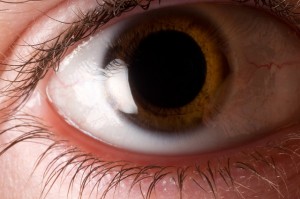 And, inevitably, you will one day have to turn that macro lens —on yourself. Only you may find yourself, through lack of practice and tolerance, unable to accurately or compassionately process what you see. What a lonely experience of self-loathing that day will be.
And, inevitably, you will one day have to turn that macro lens —on yourself. Only you may find yourself, through lack of practice and tolerance, unable to accurately or compassionately process what you see. What a lonely experience of self-loathing that day will be.
For we human beings really are the sum of our parts. All our parts. Not just our word choices. Not just our experiences. Not just the spot on which we stand in our journeys.
And not just our neurology.
